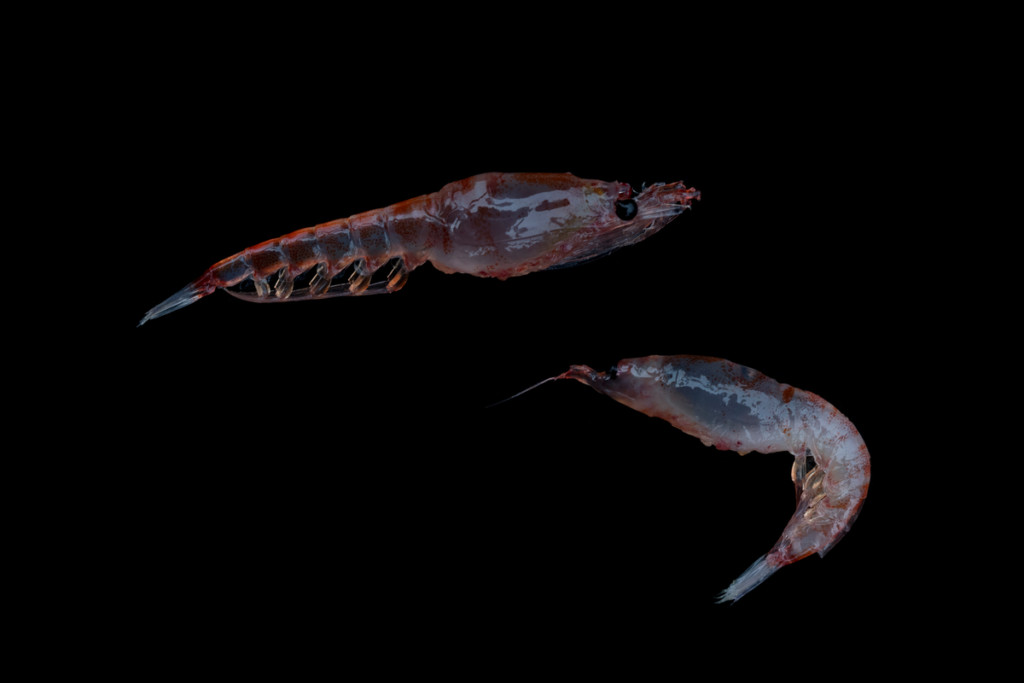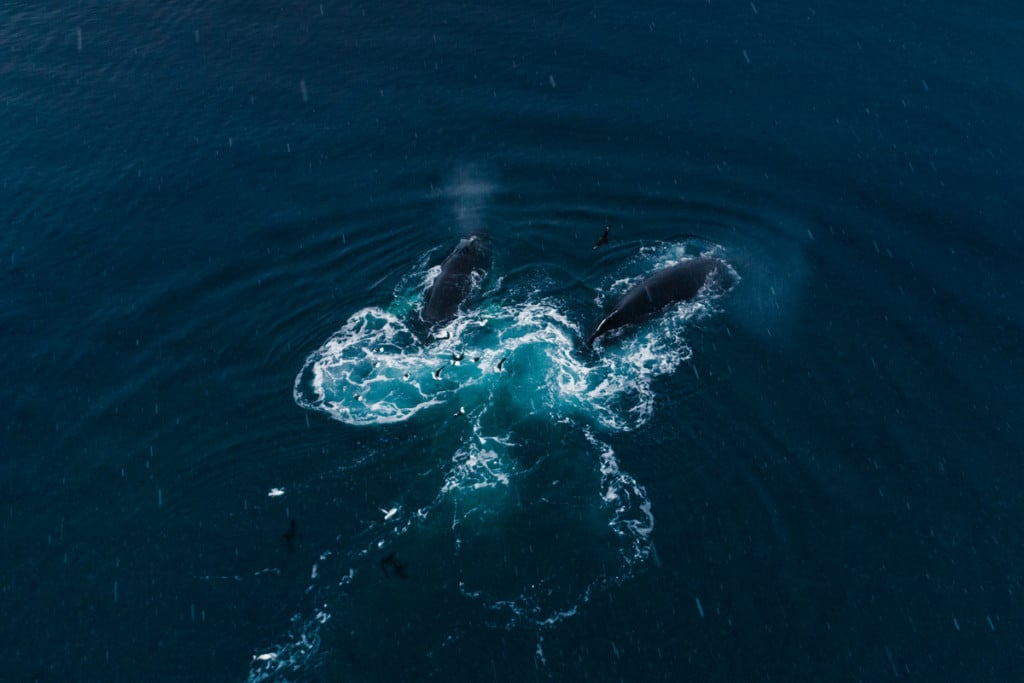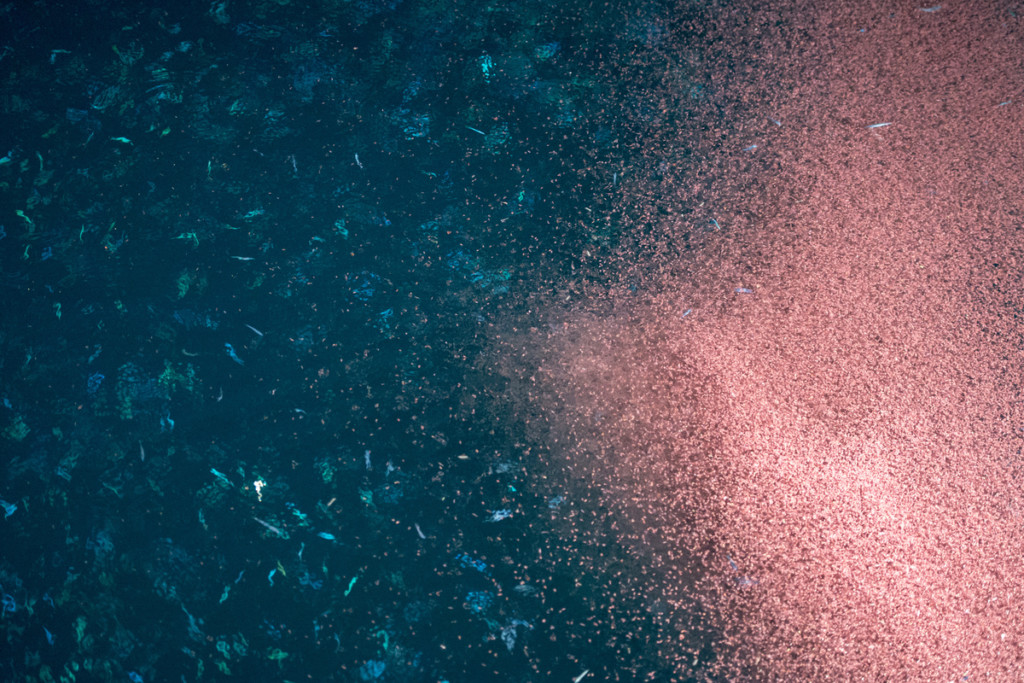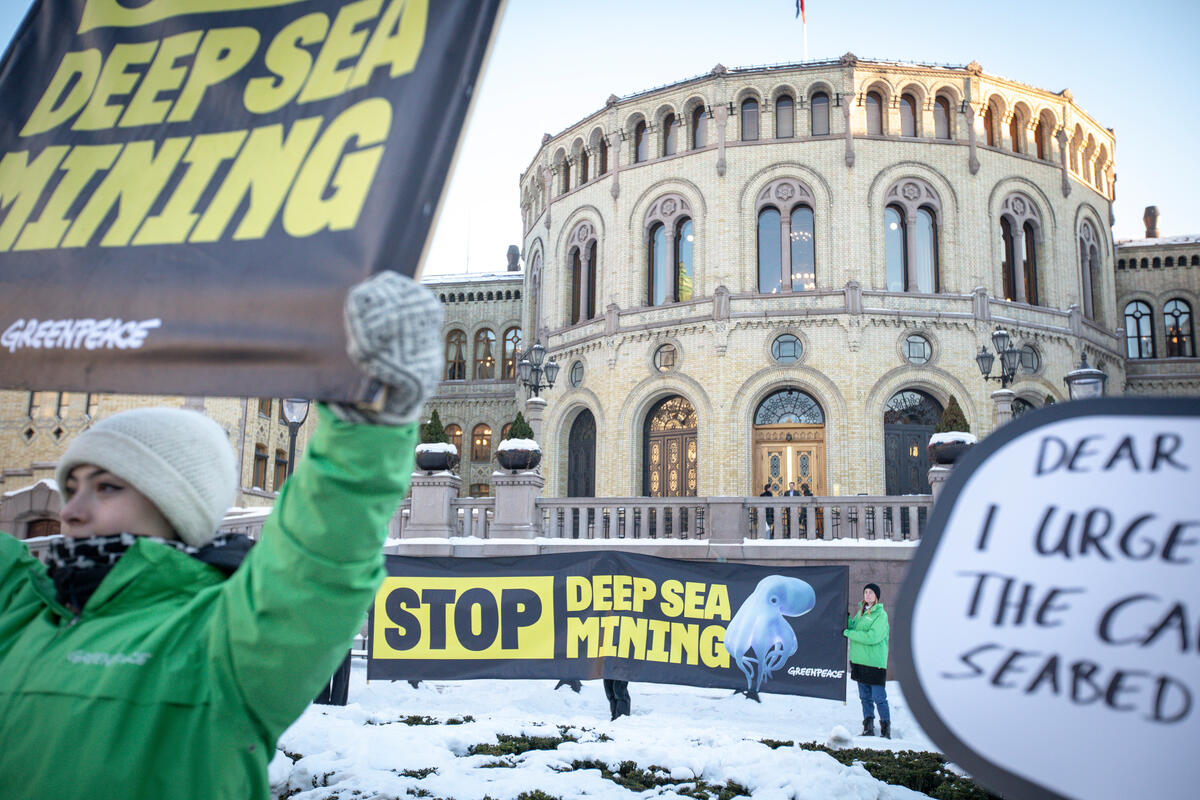Antarctic krill are tiny little creatures that look a bit like aliens. But why should you care about them? Because they’re a lot more than just whale food. Antarctic krill are massively important for the Antarctic Ocean, but they also happen to be fascinating animals in their own right.

Krill (Euphausia superba)
- They are the basis for the entire Antarctic food web. Penguins, seabirds, seals, fish, and whales all eat krill. And anything in the Antarctic that doesn’t eat krill, probably eats something else that does. Blue whales and humpback whales migrate to the Antarctic from warmer waters every year just to feast on krill.

Humpback whales feeding for krill in the Antarctic
- They can generate their own light, a fancy ability known as bioluminescence. That basically means krill swarms are one big pulsating crustacean disco party. Where’s our invite?
- Though tiny by human standards (the biggest species only grows to about 6cm long), krill swarm together in massive numbers, with as many as 30,000 in one cubic metre of a krill swarm. That gives a whole new meaning to the idea of a community!

A swarm of krill at night
- In a neat trick to avoid predators, it’s thought that krill have the ability to spontaneously moult their shell to make a quick getaway. When times are tough they can also shrink in size, conserving energy by staying smaller when they moult shells rather than growing ever bigger. If only we could do the same…
- Antarctic krill are climate heroes. Scientists have recently discovered that krill play a vital role in capturing carbon and depositing it on the seafloor – locking it up and keeping it out of the atmosphere.
Have you fallen in love with krill yet? We think they’re pretty awesome.
They’re essential for all other life in the Antarctic Ocean, and much further afield too. But they’re at risk from industrial fishing – being scooped up in their thousands to be made into Omega 3 pills and farm-fed fish food.
This year, we have the chance to put a massive part of the Antarctic off limits to the destructive fishing industry and create the world’s biggest protected ocean sanctuary.
Find out how you can help protect the Antarctic.




